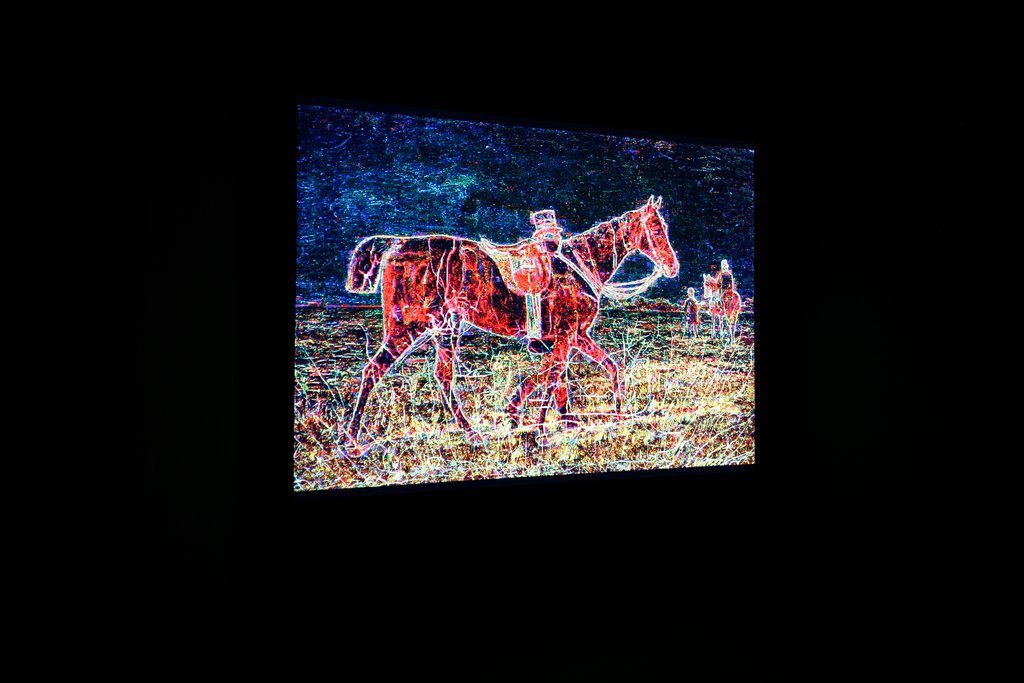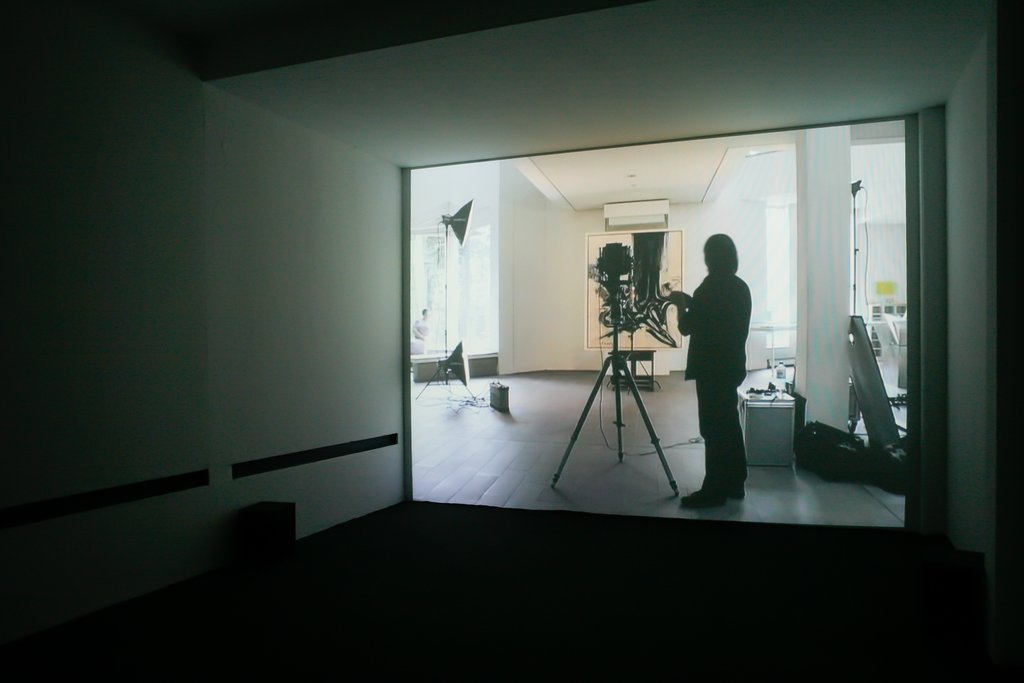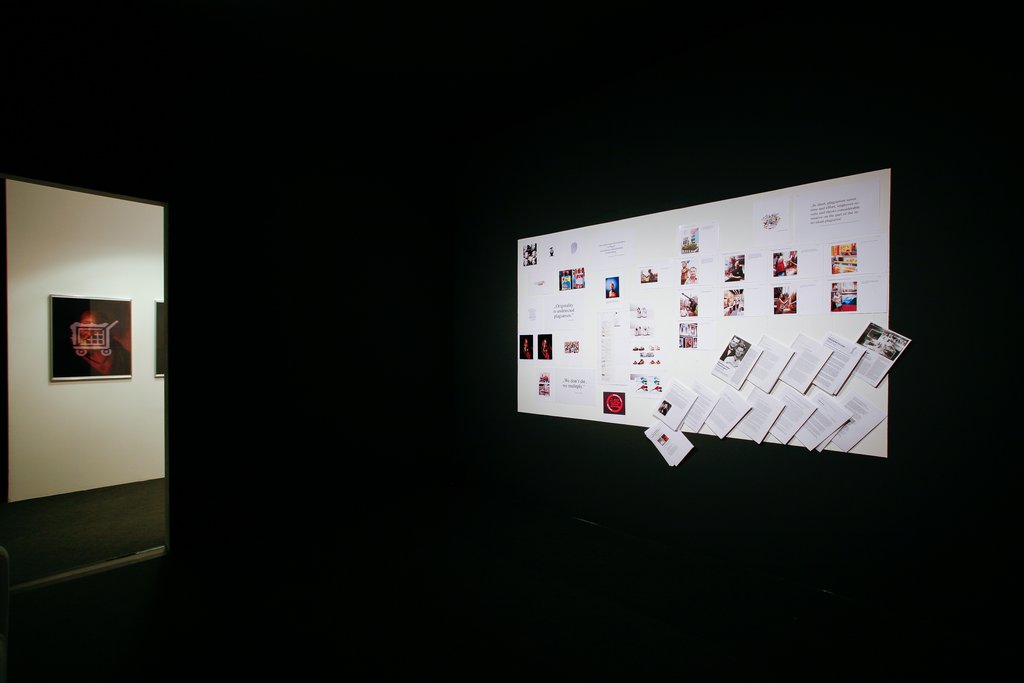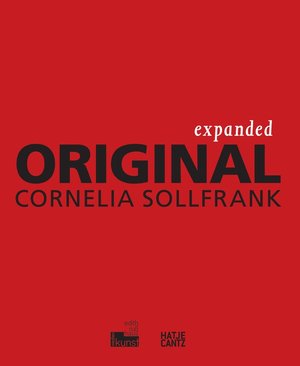Originale und andere Fälschungen
Cornelia Sollfrank has been working as an artist in and with the worldwide communications networks since the 1990s. Her net.art generator project – an internet engine that generates art – is a pioneering net.art achievement. Moreover, she has also earned a reputation as a cyberfeminist and hacker.
In her work Sollfrank takes on the parameters of art – authorship and originality – and investigates their recontextualisation with respect to the digital media and intellectual property. She hunts down art-scene and art-market clichés and contingencies, exposing them for what they are with subtle interventions.
The exhibition at the Edith Russ Site for Media Art centres on the question of "intellectual" property as related to art works that are public property. In an enlargement of the Museum Shop project, a number of original works – all on loan from Oldenburg museums – are exhibited in the Edith Russ Site for Media Art.
These works are used to demonstrate an investigation of the utilization chain.
Part of the process is having them reproduced by a professional museum photographer.
This reproduction is captured in the video Das maximal Einmalige und seine Transformation zum Gleichartigen [The Maximally One-Off and its Transformation into Similarity] as is the complex legal aspect, which is represented by countless contracts.
The art, which has now become content, lands in the online database of an image agency specially conceived and realised for the project: www.art-content24.de.
Via that website, visitors to the exhibition or those who choose to remain in the comfort of their homes can acquire the photographic reproductions of the original works – prices vary according to quality. The exhibition raises the question of free access, particularly with a view to the monopolising trend showing up on the picture rights market as well as the universal mercantilisation of culture and science.Under the auspices of a 2008 work grant, Sollfrank is also developing the internet-based software project Déjà Vu: First Plagiarism Detection Software for Fine Arts’ for the Edit Russ Site for Media Arts.The project is designed as an experimental trial. Her preliminary research into the cultural, economic and technical conditions obtaining for anti-plagiarism software is presented in the exhibition.
Whereas software of this kind is already being used as standard equipment in academic environments and in relation to texts, there are as yet hardly any effective technical solutions for providing protection against the theft of intellectual property in the visual arts and visual culture.
Curated by: Sabine Himmelsbach

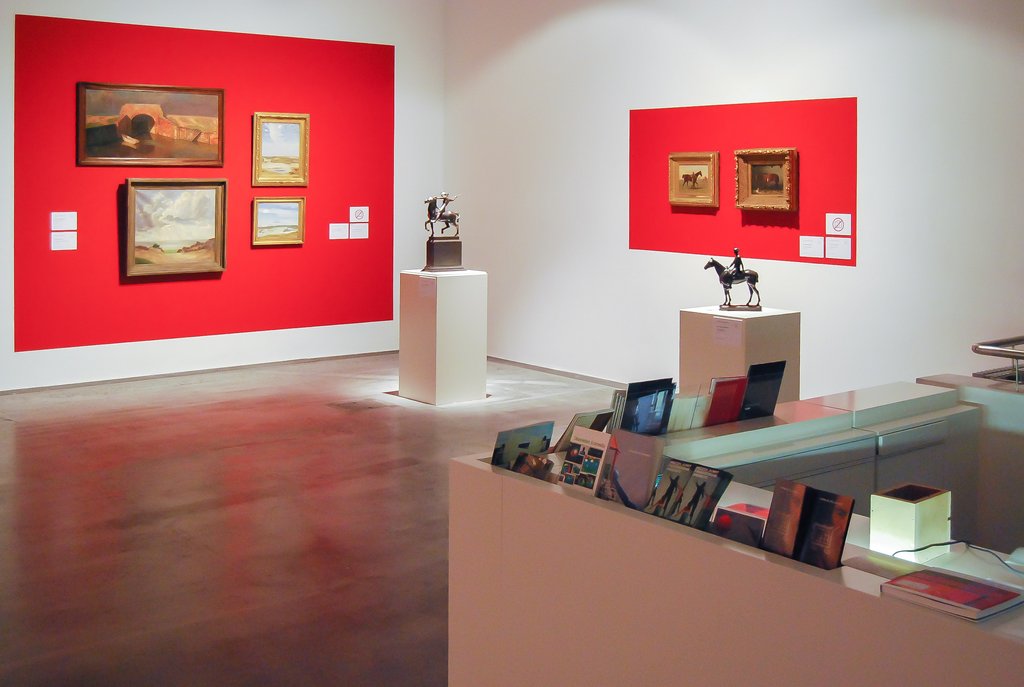
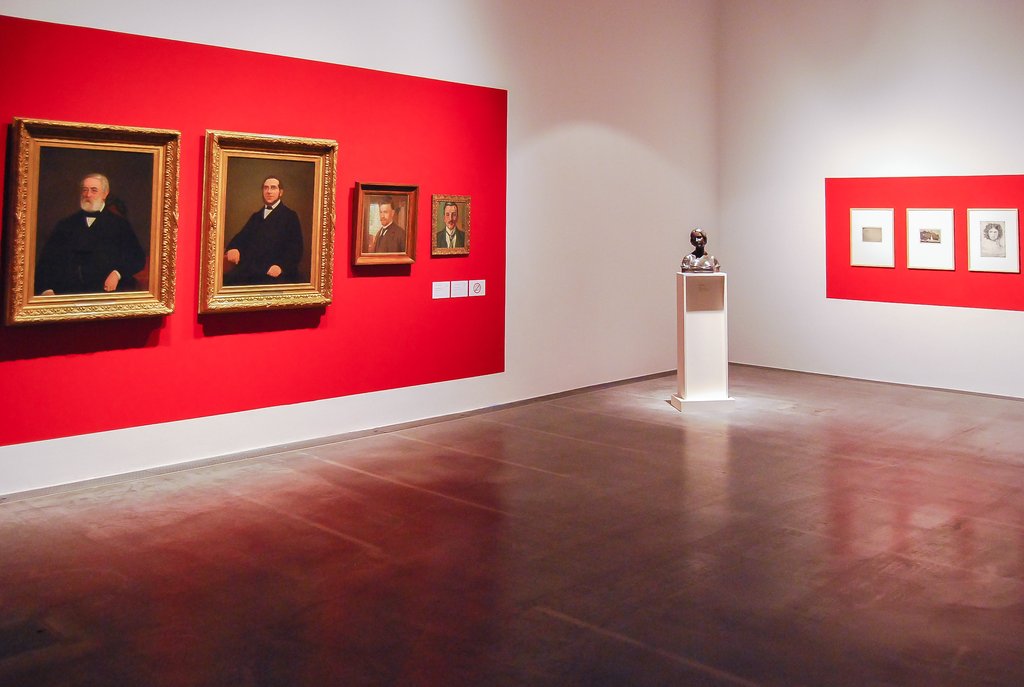
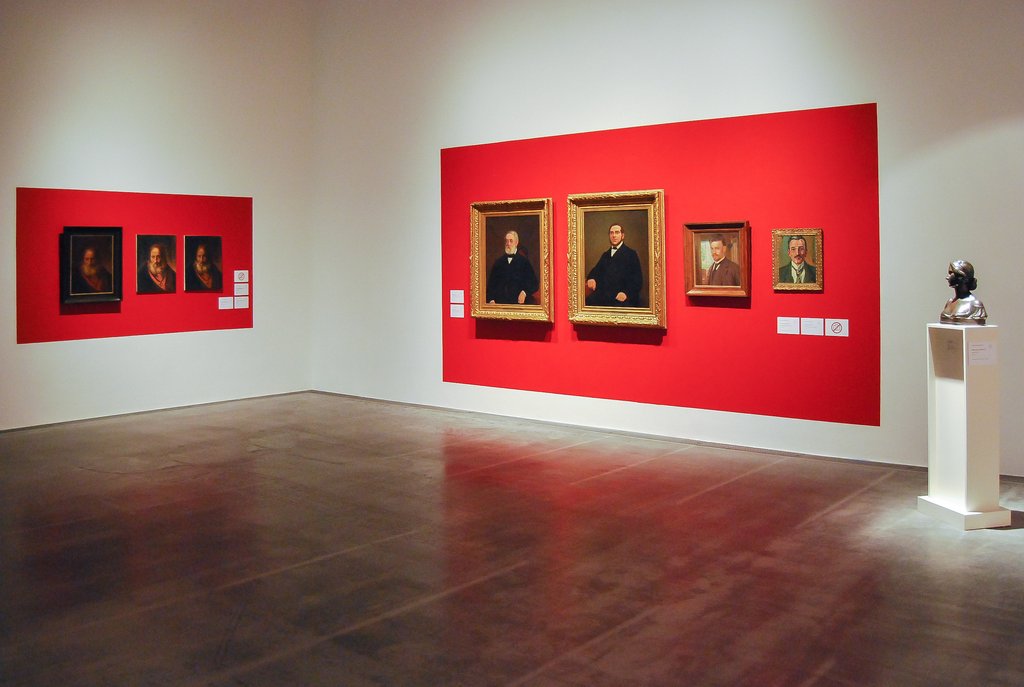
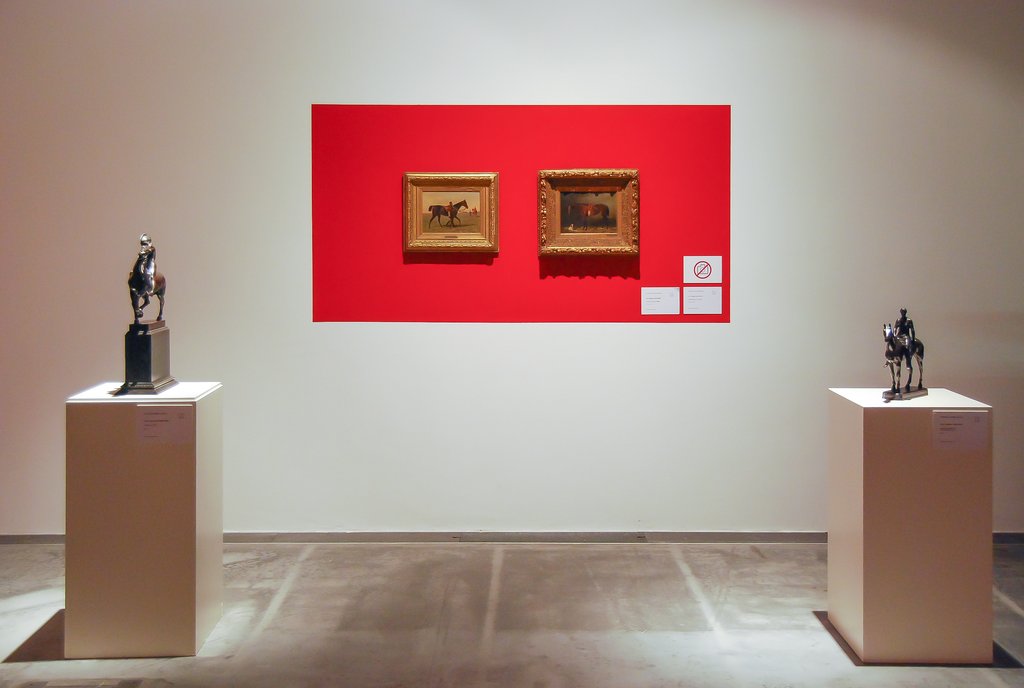
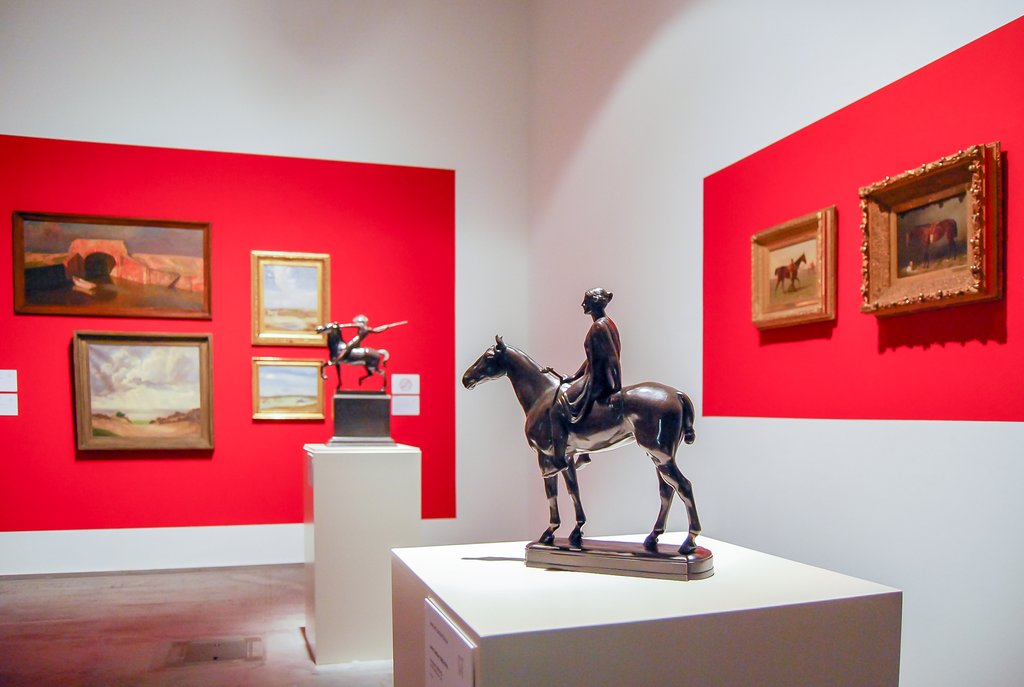
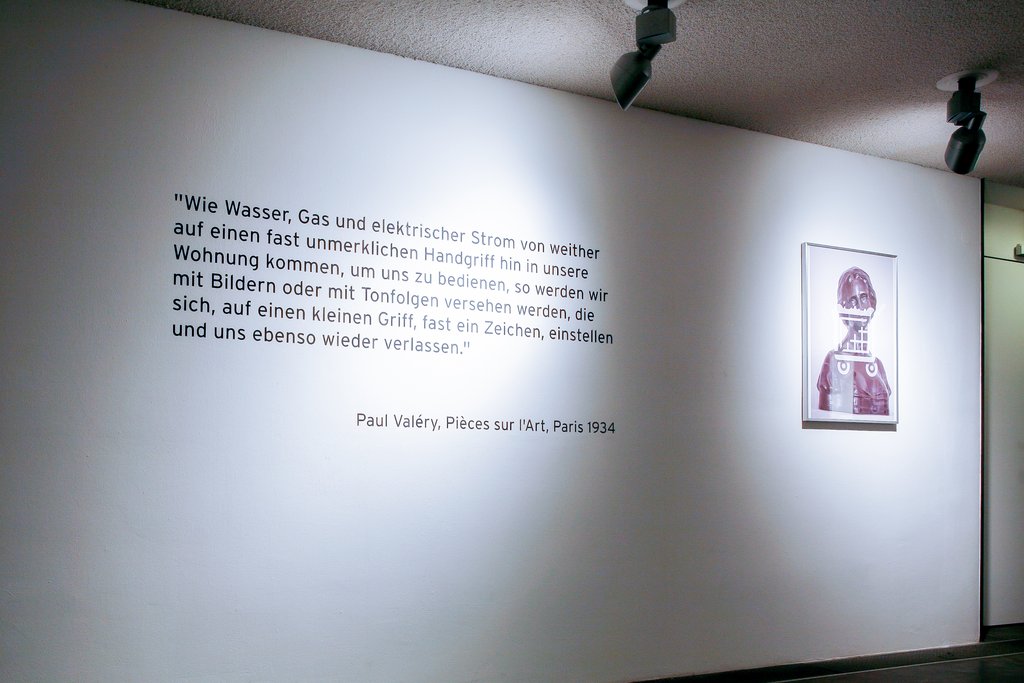
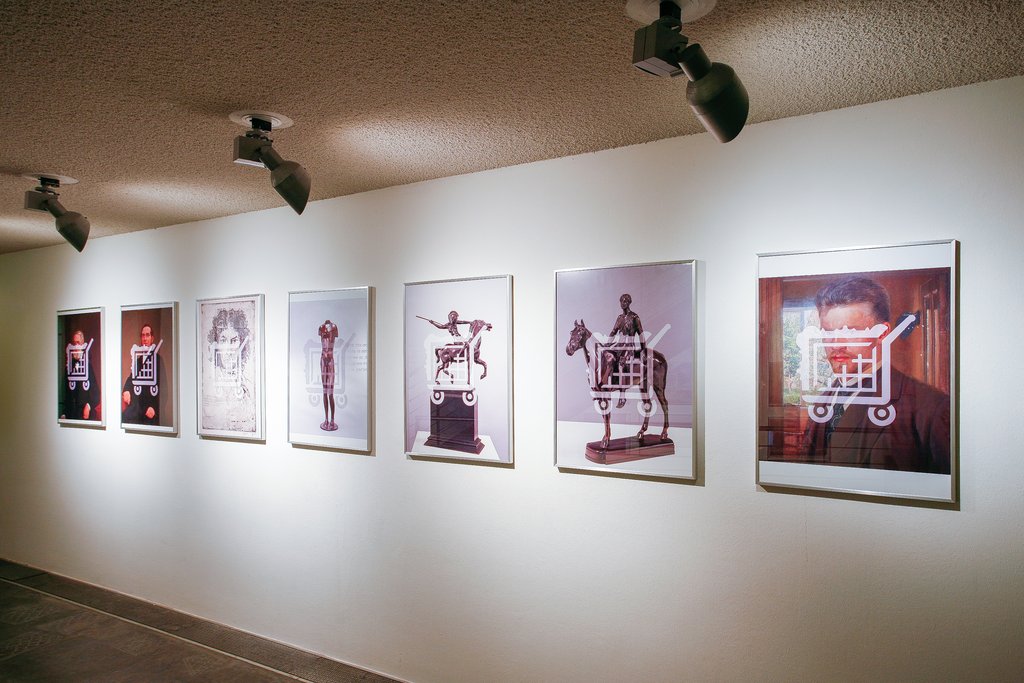
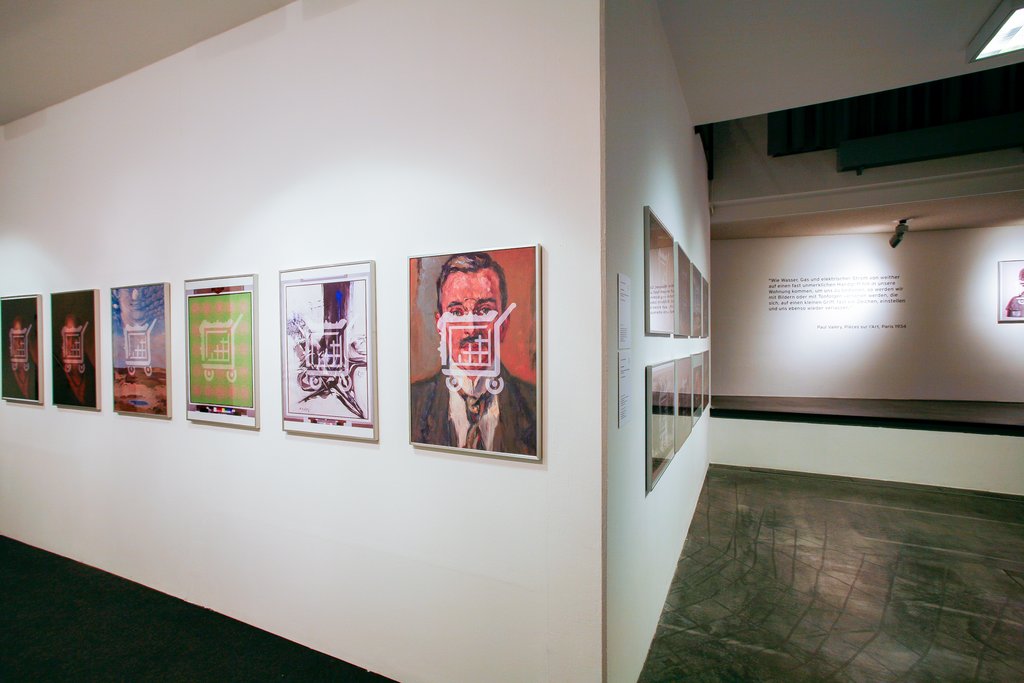
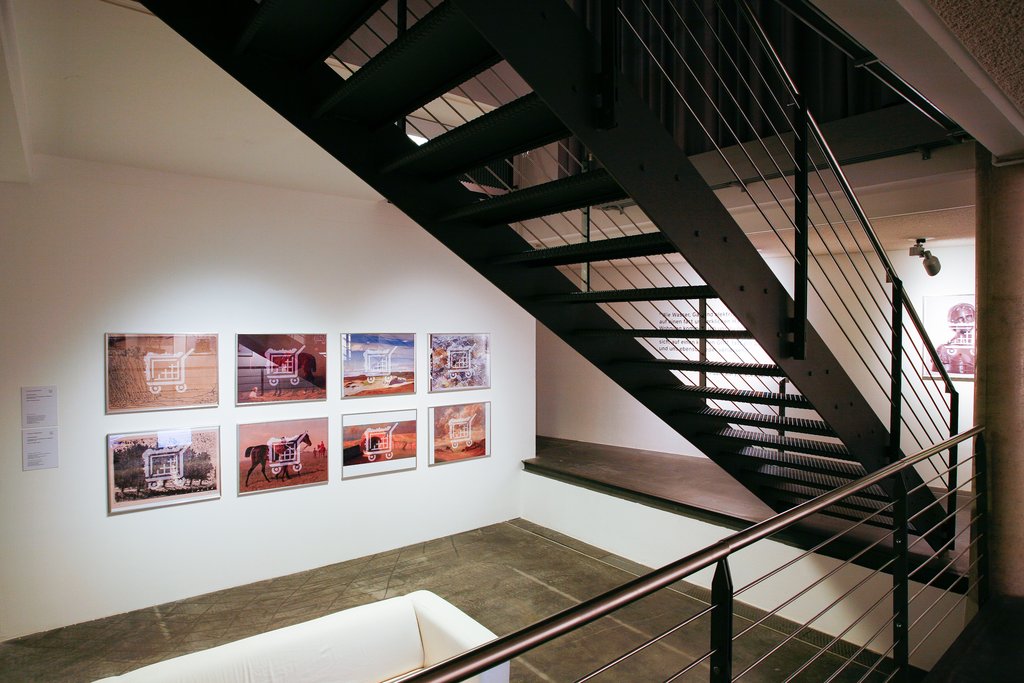
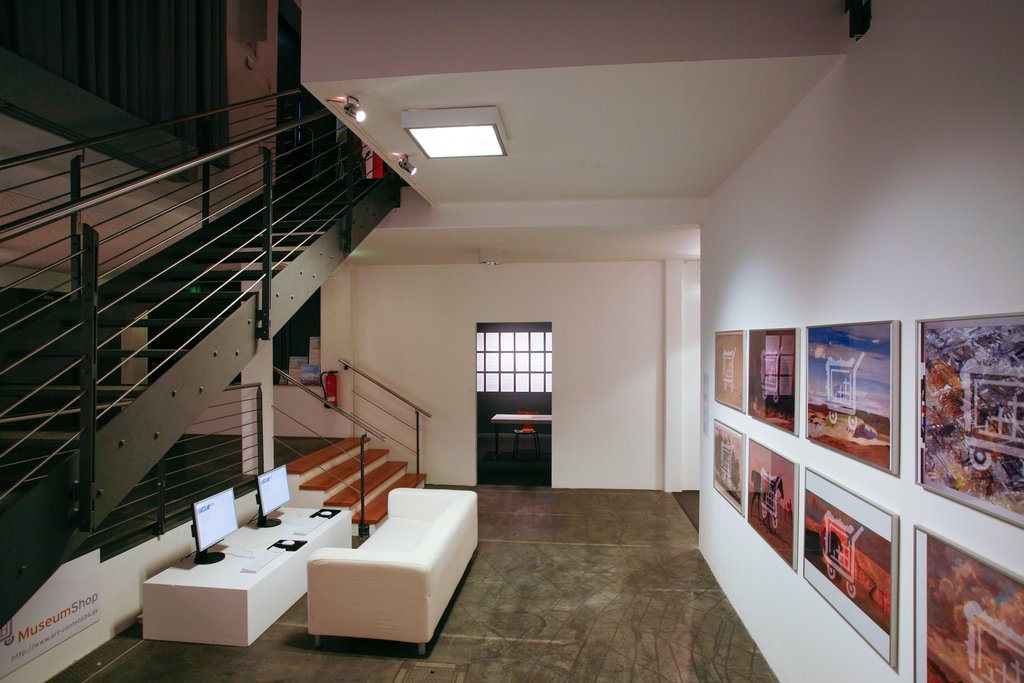
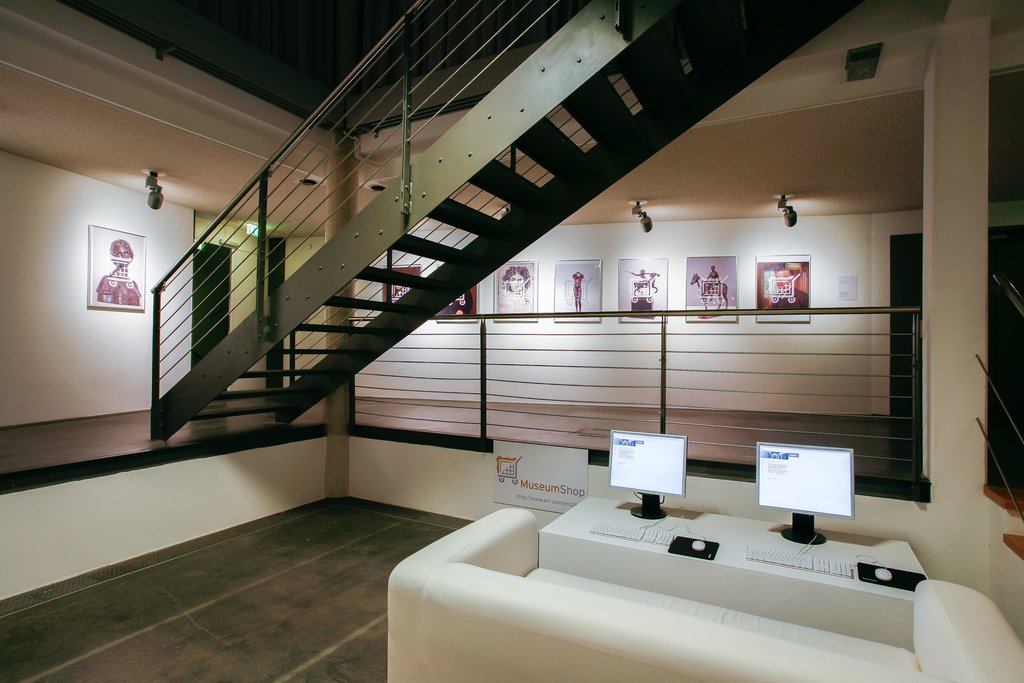
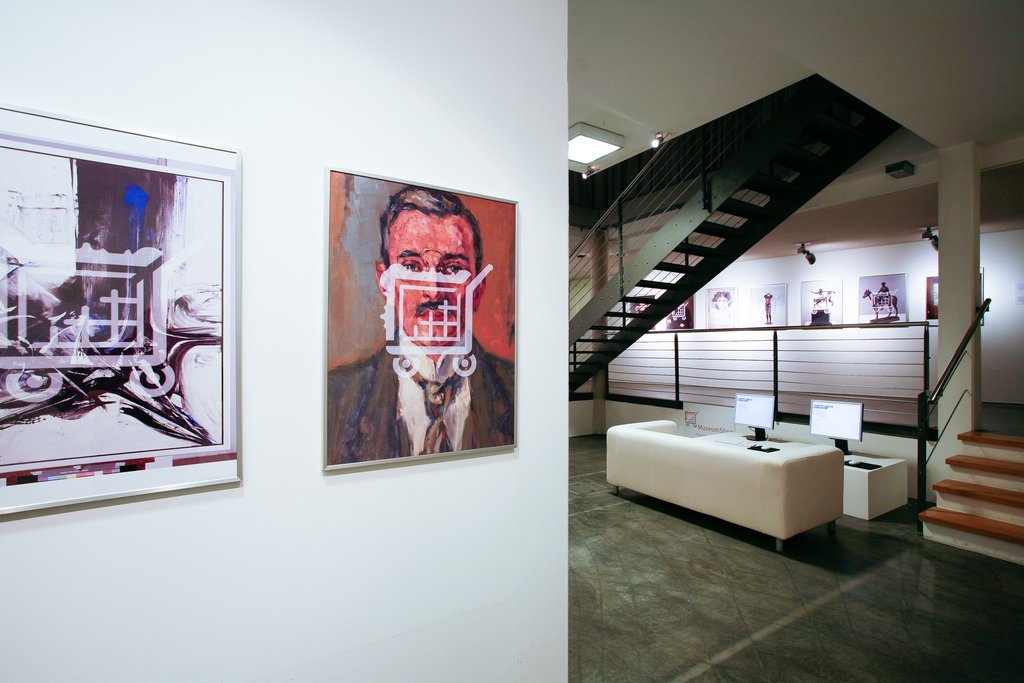
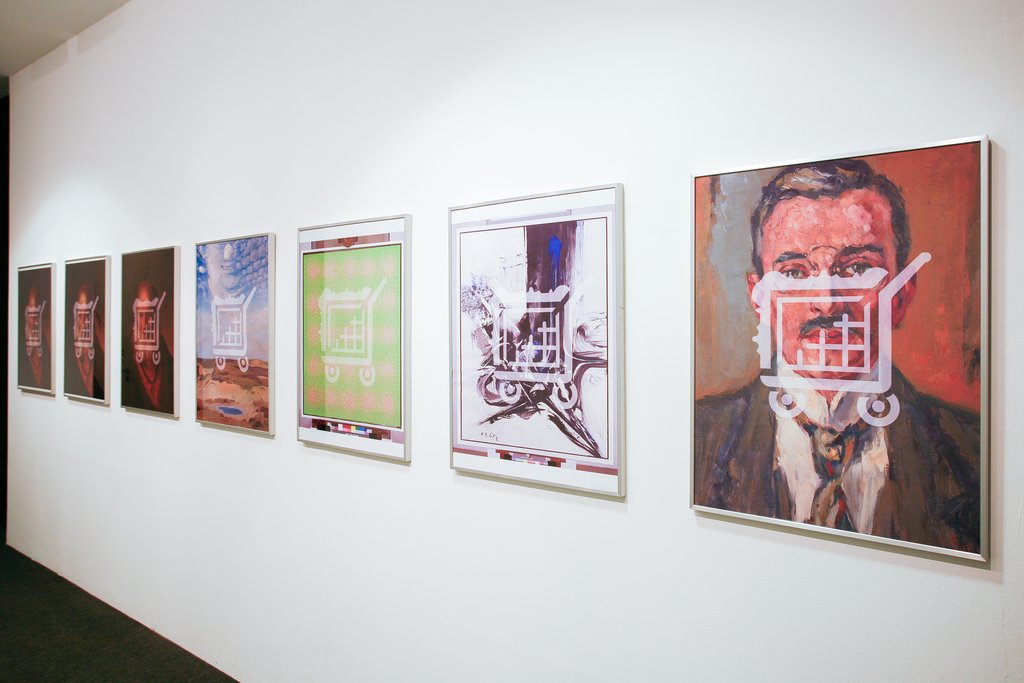
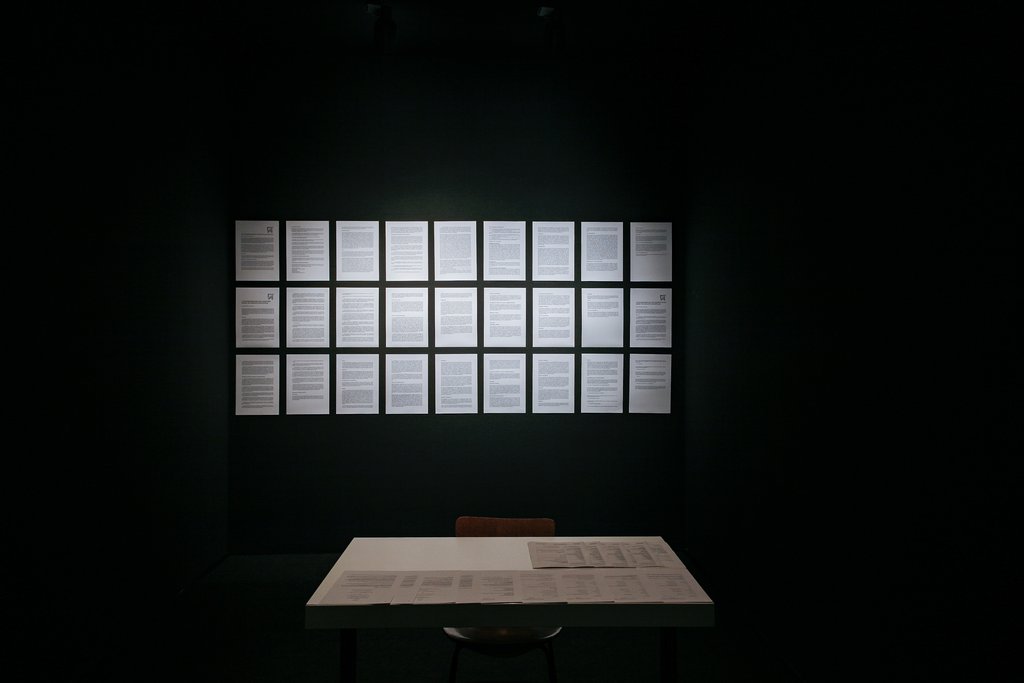
![[Translate to Englisch:] Cornelia Sollfrank: Differenzbild. Foto Christoph Irrgang © Edith-Russ-Haus The photo shows the basement of the Edith Russ House with the artwork by Cornelia Sollfrank: Differenzbild. Photo Christoph Irrgang © Edith-Russ-Haus](/fileadmin/user_upload/Bilder/2009/1_Originale_und_andere_Faelschungen/15_CorneliaSollfrank_Differenzbild_photo_ChristophIrrgang_c_EdithRussHaus2009.jpg)
